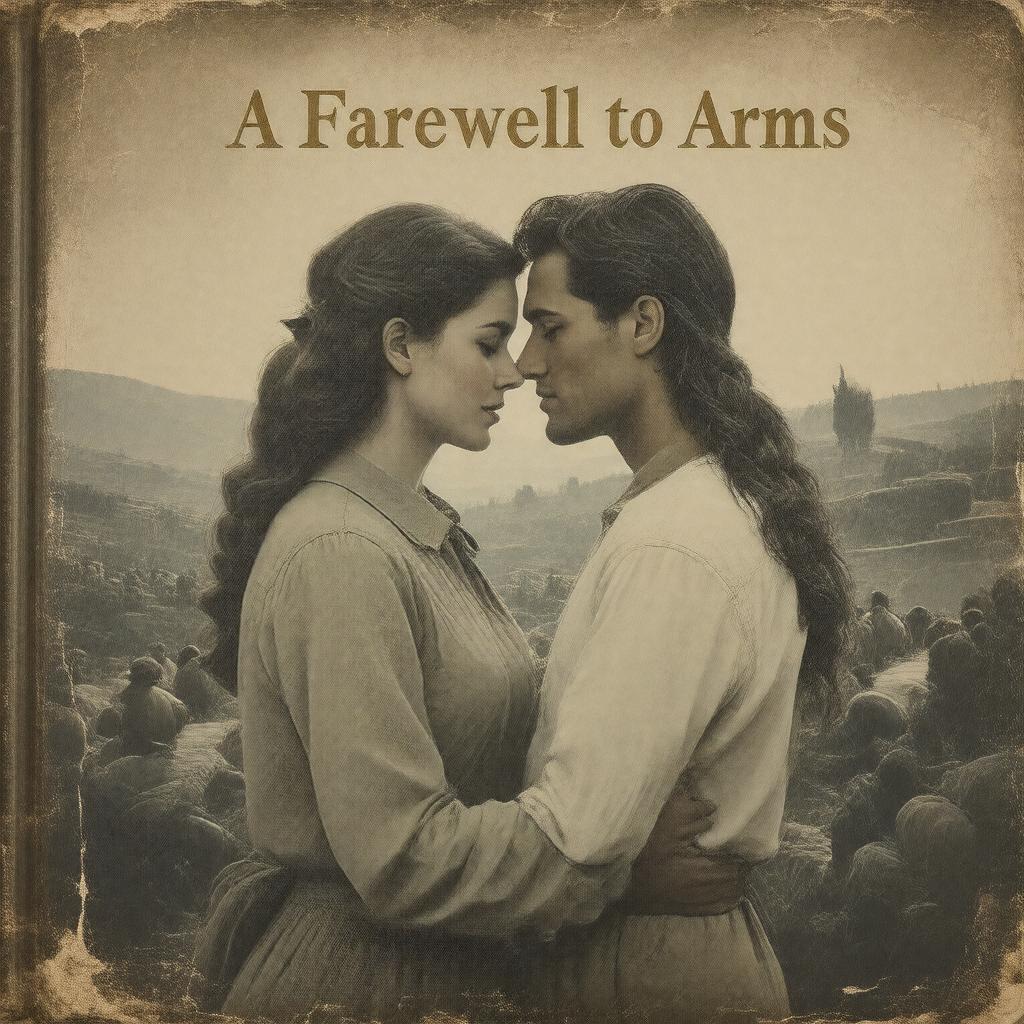Prompt
"Generate an image of a worn, vintage-style book cover with a muted color palette, featuring a romantic couple embracing in the background, and a faint image of a war-torn Italian landscape in the foreground. The title 'A Farewell to Arms' and the author's name 'Ernest Hemingway' should be prominently displayed in bold, golden font. The style should evoke a sense of nostalgia and melancholy, reflecting the novel's themes of love, loss, and war, in the Modernist literary style."

